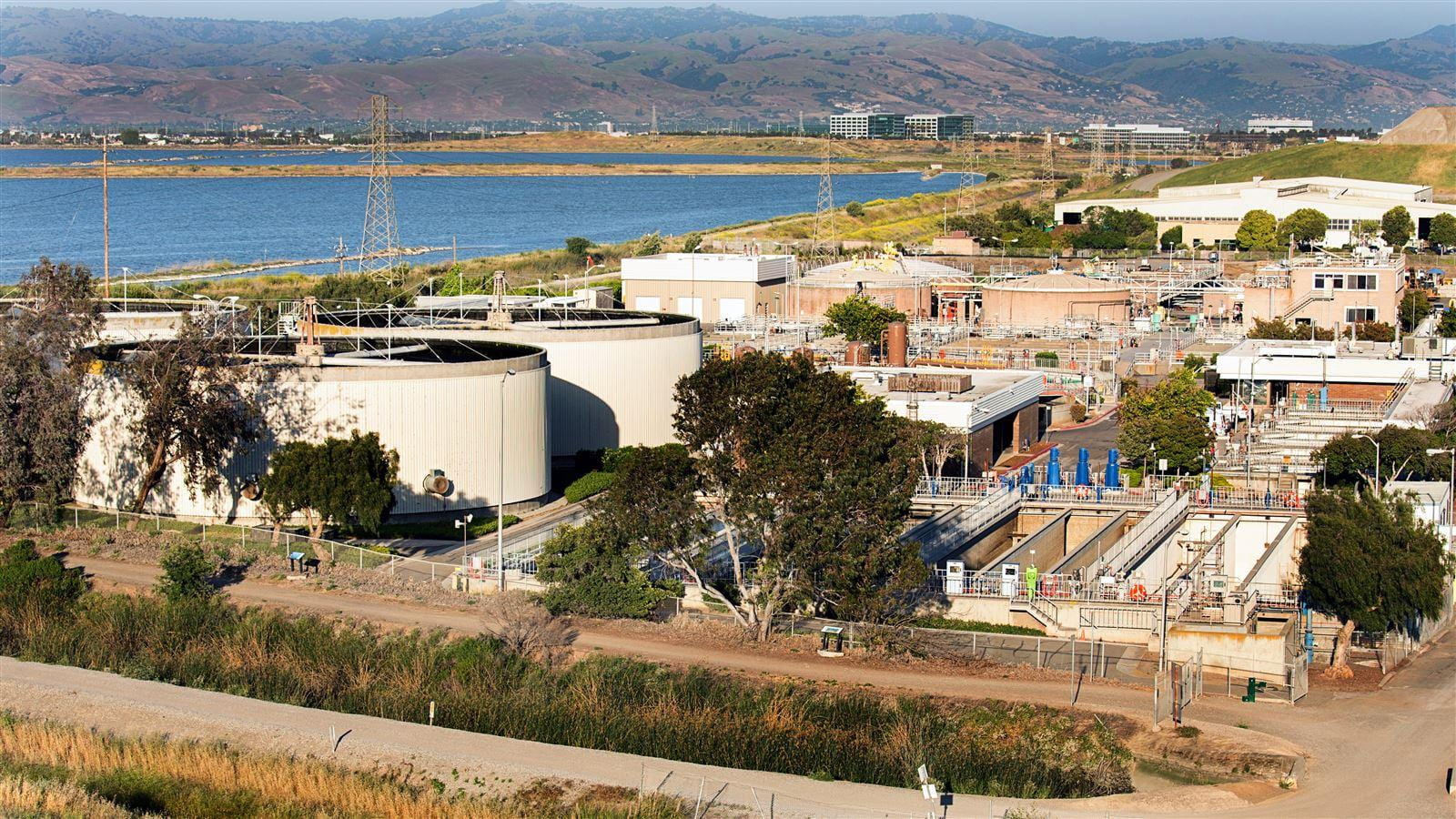Clean Water for Silicon Valley
The Cleanwater Program has many intertwined components, but those elements will come together to deliver three key benefits to the city. First, it will affirm and support Sunnyvale’s commitment to environmental stewardship. The quality of the reclaimed water that Sunnyvale discharges to local tidal sloughs, and from there to the San Francisco Bay, will be dramatically improved. Organic material that’s currently being sent to landfills, like food scraps from restaurants, would be delivered in the future to an upgraded plant for codigestion. The plant will generate renewable energy, which will both increase its resiliency and decrease its use of fossil fuels. And, the plant will meet or exceed California’s strict air quality requirements, reducing its greenhouse gas emissions substantially.
Second, the program will implement innovative technologies to create new benefits, advance efficiency and open new opportunities for collaboration. Currently, the Sunnyvale plant is producing an average of 0.8 million gallons of recycled water per day to more than 100 sites, and the Cleanwater Program team is considering opportunities for a broader water reuse program in the future. The facility is producing more than 2,500 dry tons of nutrient-rich biosolids in a typical year, the majority of which are applied to agricultural fields as fertilizer. To take advantage of new technologies, Davel explains, “We have to be nimble, we have to be flexible, we have to adjust, we’re constantly rearranging significant outcomes to take advantage of what’s around the bend.” And considering that every square inch in the Valley is hugely valuable, the team is taking “extreme care,” as Davel puts it, to maximize the use of existing space and set aside some real estate for future opportunities that may arise over the coming decades, whether that’s with regard to energy recovery, water reuse or as-yet-unforeseen technologies.
Project manager Erin McGuire, PE has supported infrastructure projects around the U.S. throughout her fifteen-year career; she is serving as deputy program manager on the Sunnyvale program. As McGuire explained, exploring and implementing new technologies takes a wide array of resources that any municipality would find a challenge to obtain, let alone a city with a high-priced labor market like Sunnyvale. “CDM Smith provides wastewater treatment, bioenergy, water reuse, permitting expertise and more from around the globe, and our job is to put those resources on-call for Sunnyvale.” And, as McGuire was quick to add, the benefits go both ways: “So many people have grown in their careers through working with Sunnyvale, it’s incredible,” said McGuire. “It’s such an ambitious program, and we’ve built such strong trust with the client, that our colleagues are able to take on new and challenging tasks and learn from the experience.”
CDM Smith provides wastewater treatment, bioenergy, water reuse, permitting expertise and more from around the globe, and our job is to put those resources on-call for Sunnyvale.
CDM Smith associate and water resources planner Andria Loutsch is part of a team helping Sunnyvale to obtain grants and loans for its program. As she explains, “Budgeting for a program like this is always a challenge for any municipality but putting in this investment now will keep the community from spending a larger amount of money in the future by preventing large failures or expensive fines.”
“Between grants and loans, we’ve saved the city almost $200M,” said McGuire. “With half a billion dollars in grants and loans—when you combine the debt service on that, and the low-interest loans— we’re cutting their debt service almost in half.”
CDM Smith and Sunnyvale are in it for the long haul. In 2023, Phase 1 of the project is expected to be completed, with total project completion anticipated in 2042.

We have to be nimble, we have to be flexible—we’re constantly rearranging significant outcomes to take advantage of what’s around the bend.
















